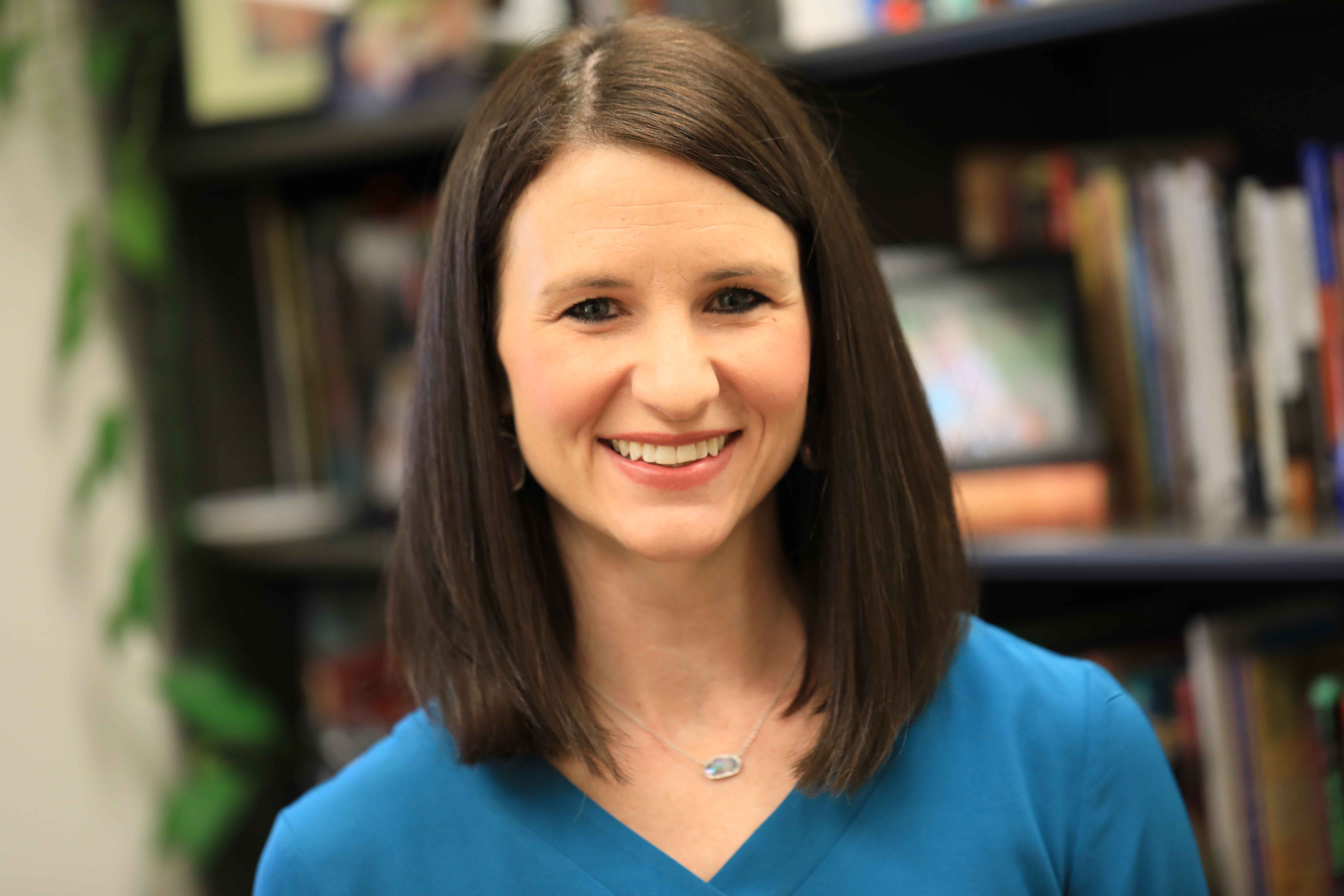Baylor Education Expert Offers Encouragement to Parents Helping their Students through ‘Crisis Schooling 2020’

Baylor University's Brooke Blevins, Ph.D., associate professor of social studies education and chair of curriculum and instruction in the Baylor School of Education, is a nationally recognized expert on secondary education and pedagogy.
Follow Baylor University Media and Public Relations on Twitter: @BaylorUMedia
By Cameron Barbier, senior marketing specialist, Baylor Marketing and Brand Strategy
WACO, Texas (April 24, 2020) – With announcements coming in from across the country that schools will remain closed for the duration of the spring semester and won’t be reconvening until the next school year, many parents of students are understandably concerned about their kids falling behind or that they aren’t making the most of the situation for their students.
Baylor University’s Brooke Blevins, Ph.D., associate professor of social studies education and chair of curriculum and instruction in the Baylor School of Education, is a nationally recognized expert on secondary education and pedagogy. She shares the differences between crisis schooling versus homeschooling and provides words of encouragement for concerned parents.
“So many things that I've read around this topic ask the question, ‘Should this actually be homeschooling or should this be crisis schooling?’ I think there is a difference. We are not homeschooling. We are crisis schooling – that’s what I would call it. We are in the midst of trying to translate all of these many realities and keep some kind of stability for our kiddos at home, but I think it's very different than homeschooling.”
Blevins said that this crisis is just as real for kids at home during this time as it is for adults.
“I believe that it’s important to recognize that students are grieving too. That they are in a process of grieving because they're not seeing their friends, they're not getting to go do their sports and extracurricular activities. Understand that sometimes children's grief manifests itself in ways that might look like defiance or tiredness or unwillingness to do what one says or temper tantrums, those kinds of things...Though they may not know how to verbalize it, they have very real things that they're concerned about themselves.”
For the many parents looking to close out the school year at home in “crisis schooling” mode, Blevins offered thoughts and encouragement, both as a professional educator and a parent going through this herself.
“I think to alleviate pressure on the parents who are saying, ‘I'm not prepared for this,’ no, you're not, and you're not supposed to be prepared for this, and that’s totally OK. We want schools to open back up in August and for your kids to go back there, and so do they, I'm sure. If they're anything like me with my kids, they want them to go back in August, too.
“The biggest thing you can do for your kids right now is help them to feel safe and help them to feel loved. At the end of the day, those are the two things that your kids are going to remember from this time. They're not going to remember that math sheet they did or the vocab. They might, but what they're going to walk away from these three or four months with is, ‘I was safe. We connected as a family and I felt loved.’ That, at the end of the day, is what you want kids to reflect back on this time about.”
ABOUT DR. BROOKE BLEVINS
Brooke Blevins, Ph.D., teaches both undergraduate and graduate courses in secondary education, social studies education and multicultural education in the Baylor School of Education. As a former secondary teacher, she has a passion for equipping teachers with the resources needed to engage in humanizing social studies education. Dr. Blevins also serves as the co-director for the iEngage Summer Civics Institute, for which she and co-founder Dr. Karon LeCompte have raised more than $250,000 in grant funding.
Dr. Blevins’ research focuses on social studies education as a means to prepare active and engaged citizens. In her work, Dr. Blevins examines how to prepare teachers to develop both political clarity and pedagogical content knowledge that encourages them to engage in transformational based and humanizing social studies education. In addition, Dr. Blevins also is interested in how to educate and empower young people to become active civic participants through participation in action civics and digital technologies.
ABOUT BAYLOR UNIVERSITY
Baylor University is a private Christian University and a nationally ranked research institution. The University provides a vibrant campus community for more than 18,000 students by blending interdisciplinary research with an international reputation for educational excellence and a faculty commitment to teaching and scholarship. Chartered in 1845 by the Republic of Texas through the efforts of Baptist pioneers, Baylor is the oldest continually operating University in Texas. Located in Waco, Baylor welcomes students from all 50 states and more than 90 countries to study a broad range of degrees among its 12 nationally recognized academic divisions.
ABOUT BAYLOR SCHOOL OF EDUCATION
For more than 100 years, Baylor educators have carried the mission and practices of the School of Education to classrooms and beyond as teachers, superintendents, psychologists, health education professionals, academics/scholars and more. With more than 50 full-time faculty members, the school’s growing research portfolio complements its long-standing commitment to excellence in teaching and student mentoring. Baylor’s undergraduate program in teacher education has earned national distinction for innovative partnerships with local schools that provide future teachers deep clinical preparation, while graduate programs culminating in both the Ed.D. and Ph.D. prepare outstanding leaders, teachers and clinicians through an intentional blend of theory and practice. Visit www.baylor.edu/soe to learn more.